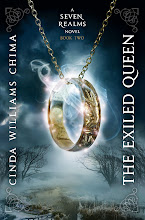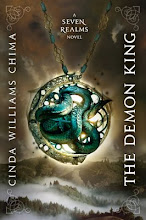Young Writer Writes: I would like to try to get my books published eventually and so was wondering does it cost anything to publish a book? Do you need to get your own editor or does the company provide one?
Young Writer,
Cool that you're making plans for publication. The very first thing to do is to make sure your manuscript is as strong as it possibly can be. Many writers (including me, at the beginning) tend to rush to the business of publication before their manuscripts are really ready. Many writers write several novels before they write one that is ready for publication.
Most successful writers revise numerous times and also submit their work for critique so that other readers can read it and offer suggestions. Those readers will usually be other writers.
You’ll find posts on finding critique partners here. http://cindachima.livejournal.com/tag/critique
You may find a number of other posts on my blog helpful, including this one called "What to Do with That Diamond in the Rough."
To read all my writing-related posts, go to my LiveJournal and use the tag, Young Writer Q&A. You'll find my writing-related posts here. http://cindachima.livejournal.com/tag/young%20writer%20q%20%26%20a
On my website, follow this link
and read all of the documents on there, including Getting Started in Writing, which has many links to useful information.
In my opinion, anyone who is seeking to publish a novel will benefit from having representation from a literary agent. A literary agent sells your work to publishers and collects a commission of 15% for domestic sales and 20% for overseas sales. Many publishers—my own included—accept submissions only from literary agents. Without an agent, you will be shut off from the largest publishers.
Finding an agent isn’t easy, though. I have a number of posts on my website relating to finding an agent.
To answer your question, a commercial or traditional publisher does not charge to publish your book and will provide an editor for you. A commercial publisher is one who makes money through selling your books through an established distribution network. Remember--money flows from the publisher to the writer and not the other way around.
Some people are choosing to self-publish these days; in that case you pay the cost of publishing your book. There are many new ways to self-publish, including digital editions that do not cost much to make available online.
However, because anybody can self-publish a book, many of the books published are of very poor quality. Even if your book is great, it can be difficult for readers to find it. While there are notable exceptions, most self-published books never sell more than a few hundred copies, mostly to family and friends.
There are a few situations in which self-publishing makes sense, e.g. in some non-fiction categories, or where you have a "platform" or opportunity to promote your books.
For example, let's say you travel the country teaching seminars on making money in publishing. You might self-publish a handbook and sell it at your seminars. Otherwise, I still think it's best to pursue commercial or traditional publishing, especially for fiction.














